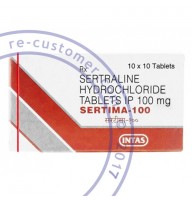Sertraline, a commonly prescribed selective serotonin reuptake inhibitor (SSRI), can cause several side effects, some of which you are experiencing. Dry mouth is a relatively common side effect of sertraline. This occurs because SSRIs can affect the salivary glands, reducing saliva production and leading to a dry mouth.
A yellowish-white tongue may be related to the dry mouth, as decreased saliva can lead to a buildup of bacteria and debris on the tongue. This can create a coating that appears yellowish or white. Maintaining good oral hygiene, including regular brushing and using a tongue scraper, can help alleviate this symptom.
A decreased appetite or not feeling hungry is another reported side effect of sertraline. Changes in appetite and weight are not uncommon when starting an SSRI, and these side effects may persist for some people or subside after the body adjusts to the medication over a few weeks.
If these symptoms persist or become bothersome, it is essential to discuss them with your healthcare provider. They can assess whether these side effects are likely to improve over time, if a dosage adjustment is needed, or if an alternative medication might be more suitable for you. Additionally, they can check for other potential causes of your symptoms to ensure that they are related to the medication and not indicative of another underlying condition.

